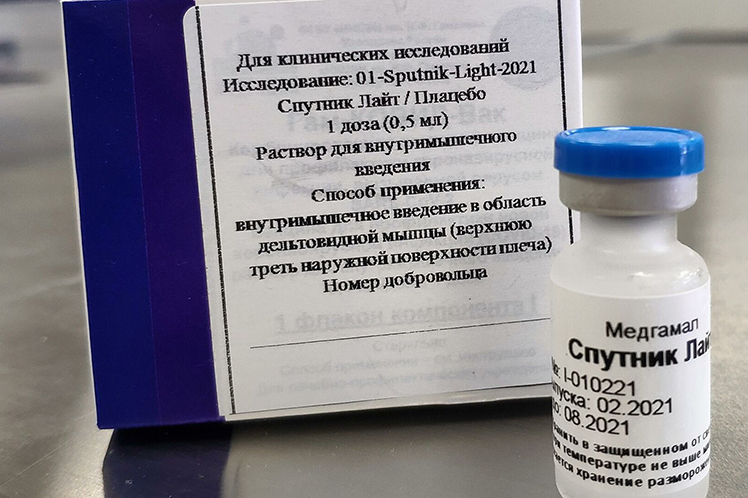The drug is the first component (recombinant human adenovirus serotype number 26) of Sputnik V, the Russian vaccine approved in August 2020 against the SARS CoV-2 coronavirus.
The single-dose vaccine was shown to be 79.4 percent effective, based on data analyzed 28 days after the injection was given, as part of Russia’s mass vaccination program between December 5, 2020 and April 15, 2021.
An efficacy level of nearly 80 percent is higher than that of many two-dose vaccines, the RDIF noted, highlighting the drug’s demonstrated efficacy against all new coronavirus strains.
The Gamaleya National Research Center for Epidemiology and Microbiology, developer of the vaccine, pointed out that during laboratory tests in clinical study phases I and II it was shown that Sputnik Light can generate antigen-specific IgG antibodies in 96.9 percent of people on day 28 after vaccination.
It also causes the development of virus-neutralizing antibodies in 91.67 percent of the people in the same period of time, while the cellular immune response against the SARS CoV-2 protein S developed in 100 percent of the volunteers. on the tenth day.
The Russian Fund further reported that no serious adverse events were recorded after vaccination with Sputnik Light and that the drug is compliant with standard vaccine storage and logistics requirements.
According to the Gamaleya Center, the single-dose regimen allows the immunization of a greater number of people in a shorter period of time, which encourages the fight against the pandemic during the acute phase.
The RDIF reiterated that the two-dose Sputnik V vaccine remains the country’s main vaccination tool.
ef/mem/mml










